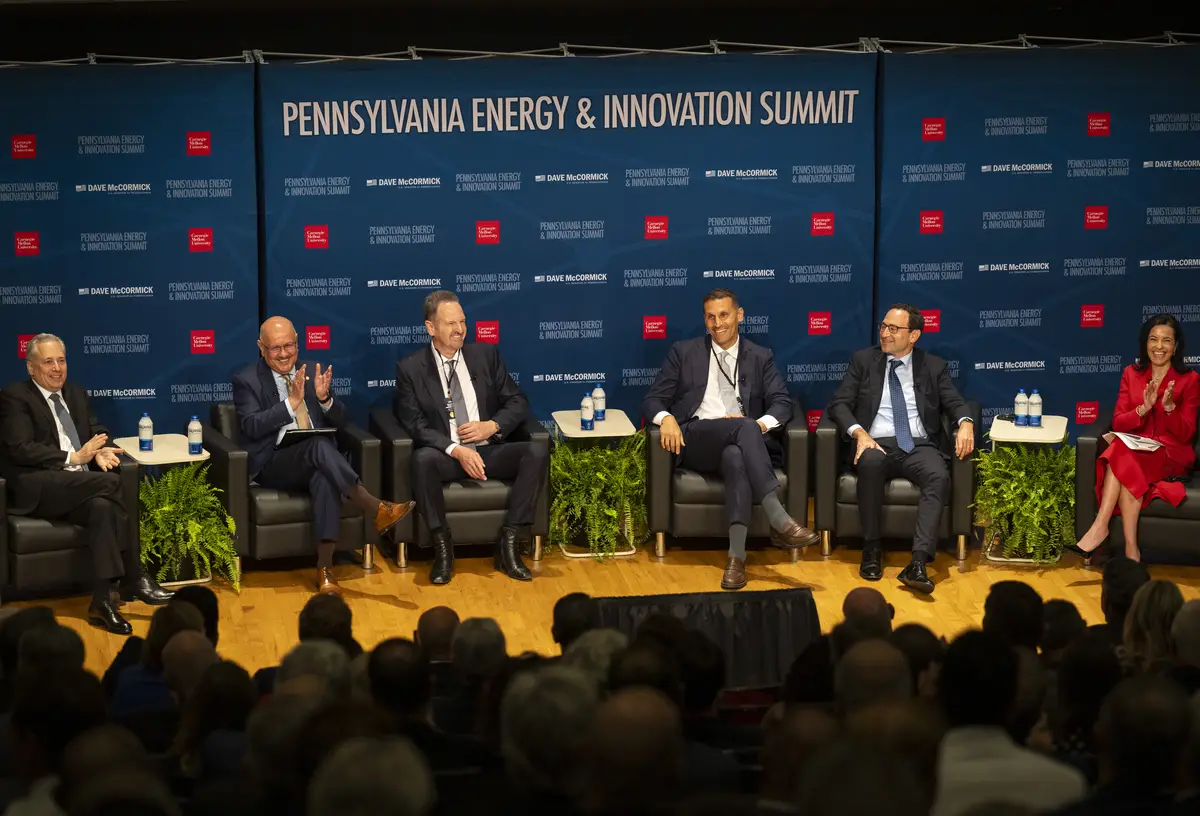
FUTUREPROOFING BUSINESS
Pittsburgh Plays Host to Two Global Sustainability Conferences
By Stephanie Tonnesen Hornback
 August 12, 2025
August 12, 2025
It’s been quite the summer vacation for Pittsburgh and futureproofing has been a re-occurring theme.
While we normally look at business in this column, we cannot ignore the pressure and responsibility cities around the world face to ensure resiliency. After all, isn’t a city really just a conglomerate?
Pittsburgh has invested heavily in futureproofing and worked hard to ensure the city’s resiliency. The payoff has been its transformation from a steel town to an international hub for technology, healthcare and innovation.
But the city has also done something else. It has offered up a blueprint for communities around the world to learn and emulate from its sustainability journey. It’s also a key reason why the city played host to two major international events this summer – one focusing on water and the other on clean energy.

Bhavini Patel
Executive Director, Sustainable PittsburghAnd that was on full display at the Pennsylvania Energy and Innovation Summit, presented by United States Senator David McCormick and hosted at Carnegie Mellon University’s campus, on July 15.
It focused on Pennsylvania’s, and particularly Pittsburgh’s, national competitiveness as a hub for artificial intelligence and clean energy. The purpose? To discuss the future of energy technology, specifically as it relates to meeting AI energy demand, maximizing sustainability and protecting communities, boosting cybersecurity and defense, and accelerating innovation and discovery.
The daylong event was attended by leaders from business, academia and politics. One of those attendees was Kevin Walker, President and CEO, Duquesne Light Company, who talked about his company’s commitment to a clean energy future.
Kevin Walker
President and CEO, Duquesne Light CompanyWalker also noted that “at the same time, DLC’s vision remains a clean energy future for all. As electricity demand outpaces supply, driven in large part by AI, we strongly encourage an ‘all of the above’ approach to meet the moment – reliance on natural gas in the short-term, followed closely by renewables – with continued investments in long-term, clean energy production. Together with policies that keep the lights on for our customers at an affordable rate, Pennsylvania can create lasting value that truly benefits everyone.”


One Water Summit at The David L. Lawrence Convention Center
Earlier in the July, Pittsburgh played host to the One Water Summit, a three-day conference presented by the US Water Alliance, a member supported national nonprofit that “aligns diverse stakeholders – utilities, public agencies, community organizations, engineering and technology firms, environmental groups, agricultural interests, labor unions, researchers, artists and culture bearers – to develop common-ground and transformational solutions to our nation’s most pressing water challenges.”
According to US Water Alliance, its program was shaped by the diverse array of cross-sector leaders to date and the range of opportunities to learn from Pittsburgh - a city defined by its three rivers and its incredible people. Pittsburgh Water played a big role in the summit.
Will Pickering
CEO, Pittsburgh WaterHe added that one reason Pittsburgh hosted the event is Pittsburgh Water’s success in lead service line replacement programs.
Over the three days, more than 700 people from across the globe heard from 100-plus speakers over four plenary sessions, six learning labs and 20 concurrent sessions. In addition, site visits were hosted at The David L. Lawrence Convention Center for its on-site water reuse and innovative water conservation strategies; Frick Park, Nine Mile Run, Fern Hallow and Wightman Park focusing on community-centered watershed restoration; The Xylem Sustainability and Innovation Hub, exploring pilot scale equipment designed to evaluate new technologies and conduct tailored wastewater treatability studies; and, Hilltop Urban Farm, showcasing community farming, land remediation and youth engagement, as well as its 200-tree orchard which is forecasted to divert an estimated 50,000-60,000 gallons of stormwater annually.



Bhavini Patel
Executive Director, Sustainable Pittsburgh


Leave A Comment